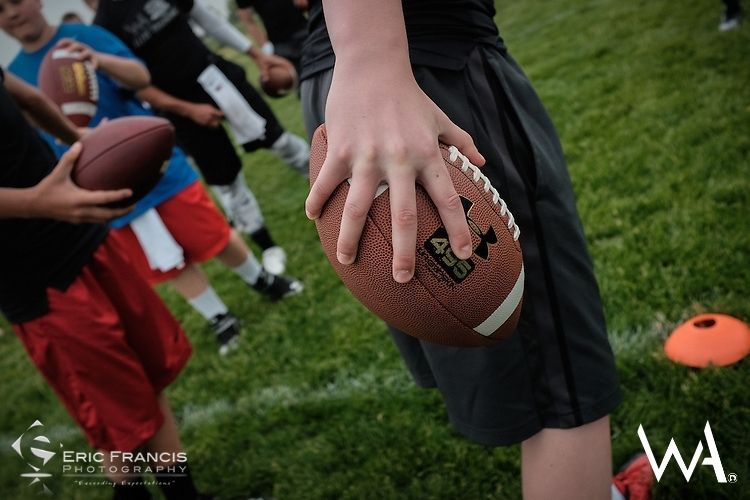
When sports injuries happen, especially in youth sports, many doctors and trainers will recommend injured athletes to RICE (rest, ice, compression and elevation). Doing this allows athletes to let their bodies recover properly and get back on the field quickly. However, there is so much more an athlete can do to help their bodies recover quickly when injured; one being focusing on their nutrition.
When injured, your body kicks itself into a new gear, consuming more energy than a body at rest. If athletes are not getting enough of the proper nutrients each day, they could actually see their injury become prolonged. This is why athlete nutrition is vital for the injured athlete.
At Warren Academy, we offer strength training for young athletes in an effort to help improve athleticism as well as an athlete’s love for the game of sports. We have worked with athletes of all ages, sports and athletic levels, and have also helped athletes recover from injuries. In this blog, we will discuss why nutrition is so important for injured athletes, and tips on how they could help their bodies recover faster!
Three stages of an injury
When sports injuries occur, there are usually three stages in which athletes go through.
Inflammation
The inflammation stage of a sports injury includes the pain, redness and swelling that athletes endure. During this stage, our bodies draw healing chemicals to help heal the injured area.
Proliferation
During the proliferation stage, our bodies try to fix the damaged tissue that surrounds the injury. To do so, our bodies replace the area with a new blood supply as well as temporary tissue to start building back a strong body.
Remodeling
Lastly, the remodeling stage removes the temporary tissue that began the recovery process and replaces it with permanent and stronger tissue for much needed support.
Nutrition
So now you’re probably wondering, what does nutrition have to do with the three stages of an injury? Actually, proper nutrition will help your body through each of these stages much more efficiently. Here are some nutrition tips and foods you should be eating during each stage of an injury!
Inflammation stage
During this stage, the RICE process we noted earlier is essential in helping jumpstart your body's recovery. However, there are many foods that are anti-inflammatory, which eliminates swelling, and can help this process significantly. Here are some great anti-inflammatory foods you should consider eating when injured:
- Berries (Strawberries, blueberries, blackberries and raspberries)
- Fatty fish and oils (salmon, anchovies, olive oil and fish oil supplements)
- Vegetables (broccoli, mushrooms and peppers)
- Avocado
- Dark Chocolate
While eating anti-inflammatory foods will help redness and swelling go down, eating pro-inflammatory foods such as fried foods, processed meats and sugary drinks will make it harder for your body to quickly recover.
Proliferation and remodeling stage
During this stage, your body works hard in creating strong tissue to support your injury. As your body is constantly working, your metabolism could increase by up to 15 to 20 percent, ultimately causing you to lose weight and muscle mass. You want to make sure that you are supplying your body with enough nutrients during these stages! Here are some tips to consider:
- Eat enough protein (1g per pound of body weight each day)
- An ample amount of fruits and vegetables
- Small amounts of fats and carbs
If you ever find yourself or your young athlete injured, utilize your diet to help speed your recovery process! By eating the right foods, your body will fully recover and you will be back on the field in no time!
At Warren Academy, we offer strength training for youth athletes in the Omaha, Nebraska area. If you are interested in signing up for one of our programs or would like to learn more about our strength training for youth athletes, visit our website today!


